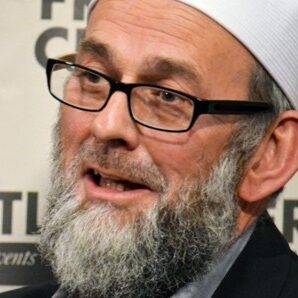When concern about the after-effects of Israel’s aggression against the civilian population in Gaza was still high, Time magazine described Palestinian refugees in Lebanon as “A Forgotten People” (25th February, 2009). It is an apt description, especially as the first anniversary of the start of Israel’s bombardment approaches and numerous reports about the situation in Gaza have been published. The latest, Failing Gaza: No rebuilding, No recovery, No more excuses describes Palestinians in Gaza having to rebuild their “shattered society”. For the past twelve months, therefore, the focus of attention has been Gaza and this has, in an entirely unintentional way, meant that the plight of Palestinian refugees in Lebanon has been pushed further into the background.
Largely dispersed around the country in twelve refugee camps run by the UN Relief and Works Agency (UNRWA), Palestinian refugees have little or no social and political status in Lebanon. They can’t work in around 70 occupations and are forbidden from owning property, even if they could afford it. This is a political decision taken by successive Lebanese governments made in an effort to ensure that the refugees do not give up their hope to return to their homeland in the future. In the meantime, they represent an underclass in Lebanon living in appalling conditions despite the best efforts of UNRWA and a host of national and international aid agencies.
There are more than 420,000 refugees registered with UNRWA in Lebanon, and the agency estimates this to be around 10% of the population of this relatively small country. The largest concentration lives in Ein El-Hilweh, on the outskirts of Saida (Sidon) on the main road from Beirut to Tyre in the south. UNRWA claims that just under 50,000 refugees are living there; local sources and Time claim 70,000. Whatever the true figure is, Ein El-Hilweh is representative of the problems faced by Palestinian refugees in all 12 camps. According to UNRWA, this means “no proper infrastructure, overcrowding, poverty and unemployment.” In fact, the current awful situation in Gaza notwithstanding, Lebanon “has the highest percentage of Palestine refugees who are living in abject poverty and who are registered with the Agency’s ‘special hardship’ programme”.
These problems were made even worse in 2007 when three months of fighting between the Lebanese Army and an armed group known as Fatah al-Islam led to the near-total destruction of Nahr el-Bared Camp near Tripoli in the north of the country. Time magazine’s Andrew Lee Butters described Nahr el-Bared as a “concrete jungle [which] was the perfect urban-warfare environment. Just 300 jihadis held their own against more than 11,000 Lebanese army troops for four months”. The camp’s residents – all 31,000 of them – were made homeless, seeking shelter in the homes of friends and relatives, temporary shelters provided by UNRWA and even converted shops and garages in adjacent areas. They’re still there; the rebuilding of the camp has been complicated and delayed by booby-traps left by the “jihadis” (most of whom were not Palestinians at all), unexploded munitions left by the Lebanese Army, legal wrangling over access to archaeological remains found during the cleanup of the ruins of the camp and, most important of all, lack of money. UNRWA needs an estimated $420m to rebuild and has been given less than $150m by international donors. Nevertheless, rebuilding has started at last in one area of the camp; former residents have been consulted all along about the new camp and look forward to the day that they can move into their new “shelters” (UNRWA refuses to call them homes) and rebuild their close-knit community.
A visit to any refugee camp in Lebanon reveals evidence that the factional disputes and divisions prevalent in the West Bank and Gaza – notably between Fatah and Hamas supporters – are also played out in exile. Walls are covered with graffiti and posters: Yasser Arafat here, Ahmad Yassin there, Saddam Hussain around the corner. The tension is palpable and the camps are considered to be so unsafe that the British Embassy, for example, won’t allow any member of staff to visit for security reasons. That has not stopped the current Ambassador, Frances Guy, from supporting UNRWA’s efforts to relieve the grinding poverty among Palestinian refugees. In October this year she attended a performance by refugee children from all over Lebanon at the end of a 5-day drama workshop led by British actor-director David Morrissey; the British Embassy provided half of the cost of the workshop.
Initiatives such as the drama workshop are intended to provide an alternative to the boredom of the overcrowded alleyways of the camps, where arguments are all too frequently settled with guns and bloodshed. A side objective is to bridge the gap between Palestinian youth and their Lebanese peers; interaction is very rare and it is hoped that cultural projects could attract young people from both communities and help to bring them closer together. In a country as divided by religion and prone to civil war and unrest as Lebanon, that has to be a good thing.
As the anniversary of Israel’s war against the civilians of Gaza comes and goes, spare a thought for Palestine’s “forgotten people”, the refugees in Lebanon, whose problems are many and solutions are few. Four or more generations have lived and died in Lebanon’s Palestinian refugee camps, but memories are long and every refugee, no matter how young, knows where “home” is, down to the district and village. Their right to return to their homeland is enshrined in international law and conventions and they remain optimistic that it will happen one day. Until then, they hope and pray that they will not be “forgotten” forever.
Further reading:
http://www.time.com/time/magazine/article/0,9171,1881651,00.html
http://www.un.org/unrwa/refugees/lebanon.html
The views expressed in this article belong to the author and do not necessarily reflect the editorial policy of Middle East Monitor.








